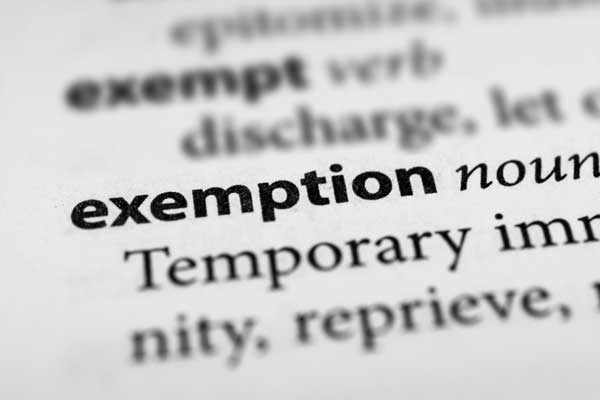
Let's shed light on the importance of sales tax exemption certificates and provide insights into the states that demand them.

Navigating the complex landscape of sales tax compliance in the United States can be a daunting task for businesses, especially when it comes to understanding which states require a state-specific sales tax exemption certificate. In this blog, we'll shed light on the importance of these certificates and provide insights into the states that demand them. Stay informed to ensure your business stays on the right side of tax regulations.
Sales tax exemption certificates are crucial documents that allow businesses to make tax-free purchases for resale or other qualified purposes. They signify that the buyer is exempt from paying sales tax on certain transactions, given they meet specific criteria set by each state's tax authority. However, not all exemption certificates are created equal, and some states require specific forms or processes.
While many states accept generic or multi-state exemption certificates, some have specific requirements that demand businesses obtain and use state-specific certificates. The reasons behind this can vary, but it often revolves around ensuring proper documentation and preventing tax fraud.
Let's dive into some of the states that mandate the use of state-specific sales tax exemption certificates:
Alabama is one of the states that require businesses to use a state-specific certificate. While they do accept the Streamlined Sales Tax (SST) exemption certificate for some transactions, there are instances where a state-issued certificate is necessary.
Colorado is known for its complex sales tax system. While they do accept multi-state certificates, they also have their own unique certificate requirements for certain transactions.
The nation's capital, Washington, D.C., has its own rules when it comes to sales tax exemption certificates. It's essential for businesses operating in D.C. to be aware of the specific documentation required.
Illinois is another state where you'll want to be cautious. They have specific reseller licenses that businesses must obtain, and they may not always accept generic certificates.
Maryland is known for its unique sales tax rules. Businesses engaging in transactions here may need to acquire state-specific exemption certificates.
Mississippi has its own requirements for exemption certificates, and businesses operating in the state should be prepared to use state-specific documents when necessary.
South Carolina is yet another state that demands state-specific certificates for certain transactions. Don't assume that a generic certificate will suffice.
Tennessee has its own exemption certificate requirements. Businesses in the state should ensure they're using the appropriate documentation.
As you can see, these states have specific rules and requirements for sales tax exemption certificates. Ignoring these rules or using generic certificates where they're not accepted can lead to compliance issues and potential penalties. To stay compliant, businesses operating in these states should:
Stay Informed: Keep abreast of the latest sales tax regulations and requirements in each state where you conduct business.
Use the Right Certificate: Always use the appropriate sales tax exemption certificate for each transaction, especially in states that mandate state-specific forms.
Periodic Review: Regularly review your exemption certificates and update them as needed. Some states require annual renewals or updates.
Consult Professionals: If you're unsure about which certificate to use or have questions about sales tax compliance, consider consulting with tax professionals who specialize in state sales tax.
In conclusion, understanding the nuances of sales tax exemption certificates is essential for businesses operating across state lines. While some states accept generic certificates, others demand state-specific documentation to ensure compliance. By staying informed and following state-specific rules, your business can navigate the complex world of sales tax with confidence.
Remember, tax laws can change, so always verify the latest requirements with the respective state's tax authority to avoid any compliance issues.